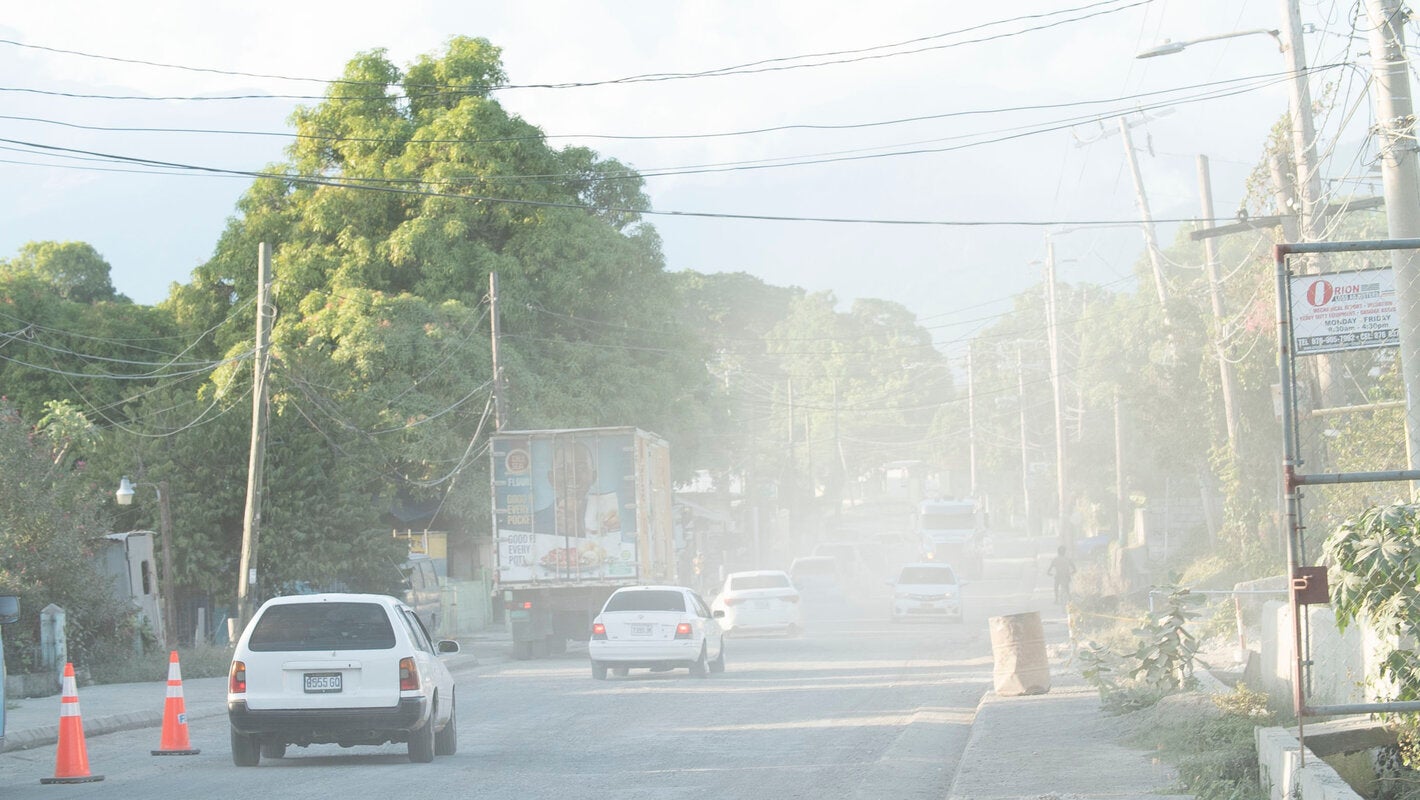
Bridgetown, Barbados, 31 July 2024 (PAHO/WHO) - To further enhance the climate resilience of health systems in the Caribbean, the Pan American Health Organization (PAHO), supported by the Green Climate Fund (GCF), is fostering access to resources needed to respond to climatic threats in seven Caribbean countries. They are Guyana, Jamaica, Saint Lucia, Saint Kitts and Nevis, Haiti, Belize, and Trinidad and Tobago.
With a budget of €$776,400, the project is focused on establishing operational national committees and generating baseline data through vulnerability and adaptation assessments and country profiles. The project is expected to culminate this year. Consultants are assisting the countries in estimating their health sector’s carbon footprint and applying health co-benefit measuring tools like CLIMAQ-H to help countries to maximize the benefits of tackling climate change and air pollution together. The tool estimates the health and related economic gains achieved by Member States by implementing actions and measures to mitigate climate change.
So far, stakeholder meetings/workshops have been held in Guyana, Haiti, Saint Kitts and Nevis, Saint Lucia, and Trinidad and Tobago. The GCF Readiness Project complements the EU/CARIFORUM Climate Change and Health Project (2020-2025) and aims to strengthen technical and institutional capacities of Ministries of Health and increase collaboration with other sectors to implement mitigation and adaptation strategies and improve frameworks to reduce emissions and strengthen climate resilience of health systems.
The GCF project began in-country work in Saint Lucia in July 2023 and held the first inter-ministerial Climate Change and Health Workshop in October. The meeting included contributions from the Ministry of Health Wellness and Elderly Affairs and PAHO/WHO and a diverse array of stakeholders participated, including various ministries, agencies and civil society organizations. The overarching message to the stakeholders represented was clear and unequivocal – The urgent need to protect public health from the extensive impacts of climate change.
In November 2023, a workshop was held to strengthen climate resilience of the health system in St. Kitts and Nevis by integrating climate change considerations into health policy and practice. This project complements other initiatives in St. Kitts and Nevis including the implementation of the PAHO Smart Hospitals Initiative, the Caribbean Action Plan on Health and Climate Change, as well as other international agreements. The need for a comprehensive national policy on data sharing was highlighted by the participants as a critical success factor for collective action on climate change.
Similarly, in Guyana in February 2024, the stakeholder session there saw some 40 health professionals convened to discuss actions being undertaken at both the national and global (Green Climate Fund, GCF) levels to build Climate Change Resilient Health Systems there. The session also served to gain critical feedback on the gaps that exist to integrate climate change into the health sector. This led to the development of the Terms of Reference for the formation of a Health Sector Climate Change Committee.
In Trinidad and Tobago in April, stakeholders representing various government institutions and various ministries discussed the integration of health and climate change topics into both inter and intra-ministerial planning for climate change action. They highlighted the organisations, ministerial departments and agencies that were already implementing actions to build resilience to the impacts of climate change.
Haiti hosted the first meeting of the Intersectoral Committee on Climate Change and Health at the end of June and prioritized the mapping of the current state and inventory of existing documents on climate change and a call for proposals to fund research programs related to climate change.
Other outputs of the GCF project are to create a climate change and health data observatory and implementation roadmap, execute an online training course for national climate change representatives, healthcare professionals and interested members of the public, increase public awareness and outreach on health and climate change and develop and submit a multi-country concept note on health adaptation and/or mitigation action to the GCF for funding at the end of 2024.



